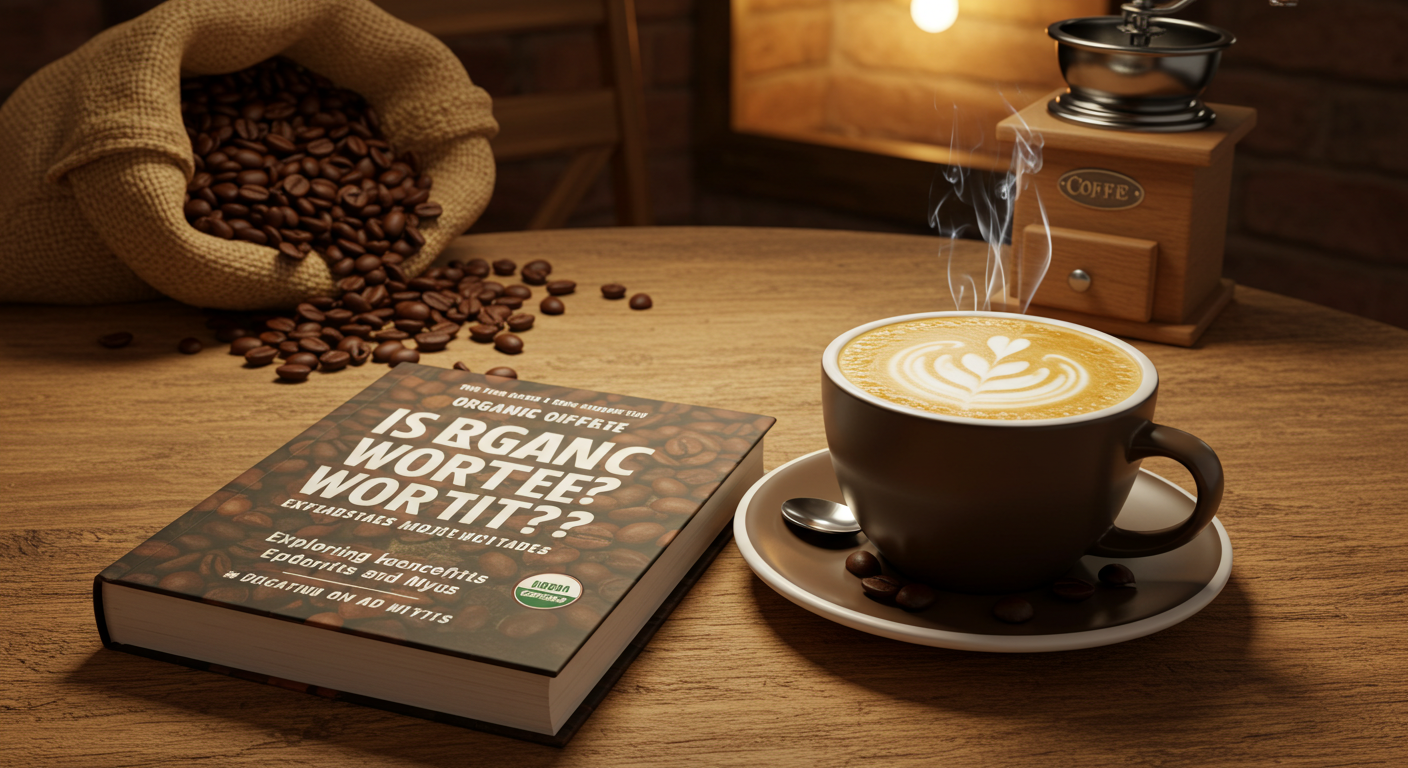In the world of coffee, “organic” is a buzzword that often suggests higher quality, better health benefits, and environmental friendliness. But is organic coffee really worth it, or is it just a marketing trend?
In this article, we’ll dive into what makes coffee “organic,” the potential advantages, common misconceptions, and how to decide if it’s the right choice for you.
What Exactly Is Organic Coffee?
Organic coffee is coffee that has been grown without synthetic fertilizers, pesticides, herbicides, or genetically modified organisms (GMOs). To carry the “organic” label, coffee must meet certain standards set by certification organizations, such as:
- USDA Organic (United States)
- EU Organic (Europe)
- JAS (Japan)
- Other national or third-party certifiers
These certifications ensure the coffee was:
- Grown on land free of chemicals for at least 3 years
- Produced with sustainable farming practices
- Processed without synthetic additives or preservatives
Benefits of Organic Coffee
1. Fewer Chemicals in Your Cup
One of the main draws of organic coffee is avoiding potentially harmful pesticide and chemical residues. While most coffee beans are roasted at high temperatures (which reduces some risks), buying organic still offers peace of mind for many consumers who want to avoid chemical exposure.
2. Better for the Environment
Organic coffee farming focuses on sustainability, which includes:
- Healthier soil through compost and natural fertilizers
- Reduced pollution of water sources
- Encouragement of biodiversity and natural pest control
In many cases, organic farms also use shade-grown techniques, preserving forest canopies that help wildlife and reduce deforestation.
3. Support for Ethical Farming Practices
Many organic farms are small, family-run operations that rely on traditional methods and emphasize fair labor conditions. While organic certification doesn’t guarantee fair trade, the two often go hand-in-hand.
By choosing organic, you’re often supporting more ethical, small-scale producers who care about both the planet and their workers.
4. Potentially Better Flavor (Sometimes)
Some coffee lovers claim that organic beans taste cleaner or more complex — especially if they’re also high-altitude, single-origin, or shade-grown.
However, flavor depends more on the bean variety, processing method, roast level, and freshness than the organic label alone. So while organic coffee can be delicious, it isn’t always superior in taste.
Common Myths About Organic Coffee
Myth #1: All Organic Coffee Is Healthier
Fact: While organic coffee avoids synthetic chemicals, its health impact is similar to conventional coffee in terms of caffeine and antioxidants. You’re still getting the same energizing, heart-healthy benefits — organic or not.
Myth #2: Organic Means Fair Trade
Fact: Not necessarily. Organic certification and fair trade certification are two separate things. If ethical labor practices matter to you, look for coffee that has both certifications.
Myth #3: Organic Coffee Always Tastes Better
Fact: Taste is subjective and influenced by many factors. Some non-organic coffees taste incredible because they were expertly grown and roasted.
Myth #4: Organic Coffee Is Always Expensive
Fact: While organic coffee can be pricier due to labor and certification costs, many affordable options exist — especially if you buy beans in bulk or directly from roasters.
How to Identify High-Quality Organic Coffee
When shopping for organic coffee, look for these indicators:
- Certification labels: USDA Organic, EU Organic, etc.
- Single-origin: Helps you trace the source and farming methods
- Roast date: Fresher beans = better flavor
- Specialty grade: Indicates higher quality beans (graded by experts)
- Transparent sourcing: Brands that share info about the farm, altitude, and process are more trustworthy
Also, check if the coffee is shade-grown, bird-friendly, or Rainforest Alliance Certified for additional environmental perks.
Is Organic Coffee Right for You?
Here are some things to consider:
Choose Organic If:
- You want to reduce your chemical intake
- You care about eco-friendly farming
- You’re passionate about supporting small or ethical producers
- You enjoy exploring sustainable options in your lifestyle
Stick with Conventional If:
- You’re on a tight budget
- You’re more focused on flavor than farming practices
- You buy from trusted roasters who explain their process (even if they aren’t certified)
It’s not an all-or-nothing choice. Some people mix both depending on the occasion, price, or availability.
Final Thoughts: It’s About More Than Just the Label
Organic coffee offers real benefits — especially for the environment and farming communities — but it’s not a magic solution. The organic label doesn’t guarantee superior flavor or ethics, and not all non-organic coffees are “bad.”
Ultimately, the best coffee is one that aligns with your values, your taste preferences, and your budget. If you care about clean farming and sustainability, organic coffee can be a powerful way to make a difference with every cup.


